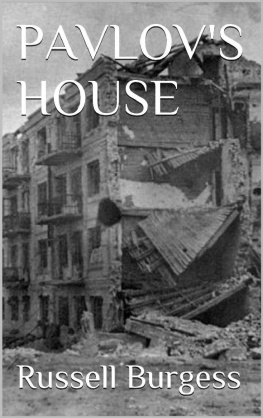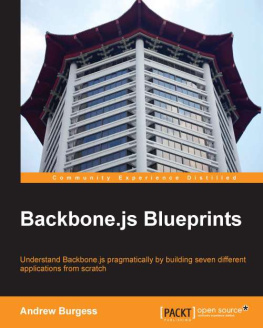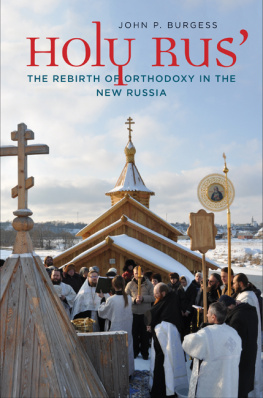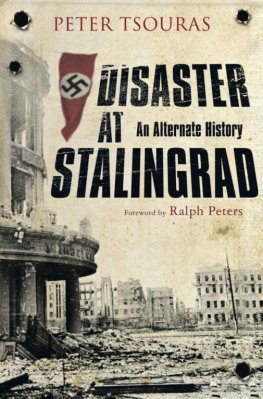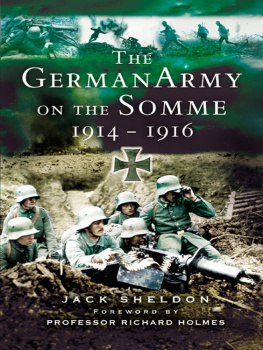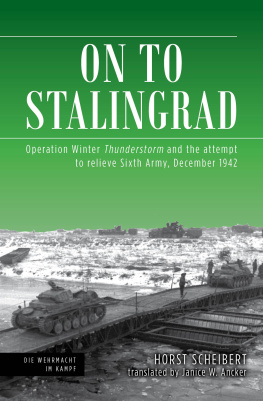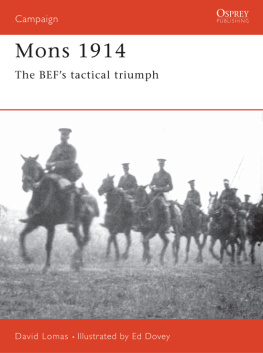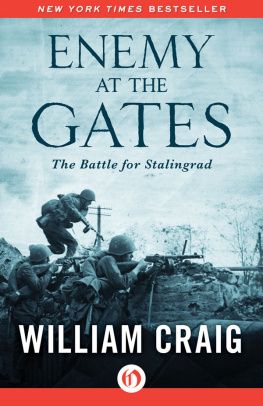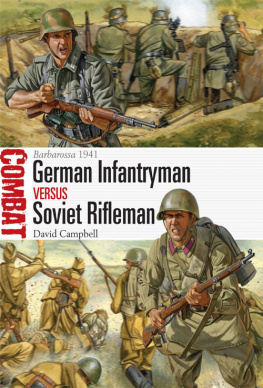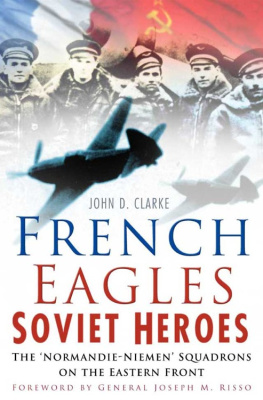| Pavlov's House |
| Russell Burgess |
| Russell Burgess (2013) |
|
Pavlov s House
Russell Burgess
Text Copyright 2013 Russell Burgess
All Rights Reserved
Front Cover Russian State Military Archive Wikimedia Commons CC-BY-SA-3.0 / GFDL
For my wife, Ange
To secure ourselves against defeat lies in our own hands, but the opportunity of defeating the enemy is provided by the enemy himself.
Sun Tzu
The Art of War
Prologue
Sunday 23rd August, 1942. The city of Stalingrad glistened undamaged in the resplendent summer sunshine , a solitary shimmering jewel in the diminished crown of the Soviet Union. The gleaming apartment blocks, which housed teeming throngs of factory workers, stood proudly overlooking the wide, and gently rolling, river Volga. The parks, gardens and paths which hugged the east bank, high above the mighty river, were spotless in their condition, tended lovingly since their inception by a small army of groundsmen, and the overall impression that the city exuded, despite the conflict in other parts of the country, was that of quiet affluence.
The half million or so inhabitants remained in the city, despite the proximity of the advancing Wehrmacht, and had largely gone about their business as normal as the danger loomed. Soviet propaganda had shielded them from much of the truth, that Hitlers armies were poised for a strike at the Volga in an attempt to cut the country off from the vital oil supplies of the Caucasus, but many were realistic enough to know that the Germans would soon be attacking them. Stalin himself, unbeknown to the majority of the population, had ordered that the civilian residents should not be evacuated from the city. He felt, and with some justification, that the Red Army would fight all the harder for a city crammed with a civilian population, rather than for one that had been evacuated.
The model city was to be the ultimate prize for the Wehrmacht, at the end of a near 700 kilometre slog which had begun at Volchansk and pushed across the Russian Steppe without pausing for even a snatch of breath, trapping huge numbers of Soviet soldiers in the bend of the river Don before smashing their way onwards to the outer suburbs of Stalingrad itself.
The seemingly unstoppable German armed forces had swept the Red Army before them as though they were swatting at an irritating fly. Now they were within touching distance of their ambitious plan to cut the nation in half and it seemed that nothing the Russians could do would prevent them from victory.
On the streets of the city, workers toiled in the summer heat to erect the barriers they had been ordered to construct. These barriers would stop the German advance, they were told, and would provide the necessary defence lines to ensure the city remained in Russian hands. Some, who had seen at first hand the power of the German army, were not so sure that a few overturned streetcars would be enough to halt a panzer division in full flow.
Every available person, between the ages of 16 and 60, and many even younger, was used in the construction of barriers, anti-tank ditches, bunkers, trenches and other defensive positions. Youths from the university were commanded by their lecturers and prepared defences on the campus grounds. Younger children were pressed into some service, filling sand bags and digging ditches. Nobody was allowed to shirk the responsibility of the defence of Stalingrad.
There were few men in the city that were not in military uniform and they too worked feverishly to prepare for the inevitable German attack. Commissars and party officials urged people to defend the city to the death and orders had been issued for harsh and immediate measures to combat traitors, deserters and defeatists.
Air raid warnings were commonplace, but there had been little enemy activity over the city and the bright summer sun of an August afternoon provide d no particular reason to assume danger. Some, from the outskirts of the city, had spoken of hearing the sounds of heavy guns firing in the distance some days before and to seeing increased air activity in the skies above their villages. Many tried to lighten the mood, talking confidently about the Red Army being ultimately victorious and of their faith in Stalin, although much of this was bluster and was meant for the ears of any listening Party officials. Despite the imminent risk of attack most people were generally unconcerned.
Suddenly the loudspeakers, which were attached to every lamp post in the city centre streets, crackled into life. This had been a regular occurrence in the previous few weeks and most people ignored the repetitive warnings, continuing to dig and build, so used had they become to false alarms. People laughed and joked that the Soviet air force would soon be in the skies to repel any Luftwaffe raids and would send them scurrying back to Germany. Many of those who had already faced the Germans, and seen the ineffectual attempts of Russian pilots, knew that this was unlikely at best.
Within minutes though, an anti-aircraft battery, situated somewhere to the west of the city centre, opened fire. This was unusual and the workers stopped, unsure what the gun crew were firing at. Another battery, some distance away in the north of the city, also opened fire, a steady rhythmic thump echoing back through the wide streets and avenues. Then came a sound, almost imperceptible at first but gradually increasing in volume until it sounded like the droning of a vast swarm of locusts, intent on malice, high in the clear blue skies above the city.
German planes, someone shouted, realising the danger.
More Russian guns opened fire, out in the suburbs now, and soon the sound of the droning aircraft was mingled with the firing from the anti-aircraft weapons and became almost indistinguishable.
As the first wave of 500 aircraft swept over the majestic city in formation, they began to release their payloads. High explosive bombs and incendiary devices fell in great stacks, whistling through the air as they hurtled to the ground, demolishing the wood-built suburbs in a blazing fury. As the aircraft approached the centre of the city they continued their destructive swathe, hitting the rooftops of tall apartment buildings, churning up pavements and gardens, flattening everything that was not built of anything but the strongest materials. Facades of beautiful and prominent buildings crashed into the streets and boulevards, crushing vehicles and defensive barriers and burying those who had not been quick enough to escape the sudden attack.
Many people were too far from the shelter of the basements in their homes, which would offer some protection from all but a direct hit, while the huge numbers of refugees from outlying districts, who had been pushed into the city by the German advance, had nowhere to go at all. Thousands of these ran for cover to the nearest shelter they could find, usually just a ditch or a trench which had been hastily dug in an otherwise open street. There they would huddle together as death rained on them from above, and there many of them would die, sometimes as whole families, buried alive in the earth and rubble and twisted steel.
Many of the lucky ones that made it to the bunkers and cellars would see out the bombing from there. In fact hundreds would live out the entire battle in such places, all five months of it, living on filthy water and whatever scraps they could scavenge or beg.
The German bombers, for their part, had an easy focus. The entire city. Anything was fair game. Housing estates, factories, railway lines and stations, military and civilian buildings, fuel depots, ferry terminals and defensive positions. Everything was a target and the bombs fell with impunity, taking no consideration of age, sex or political views.

